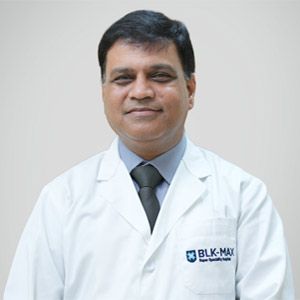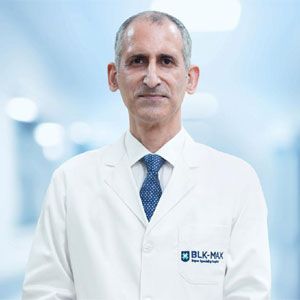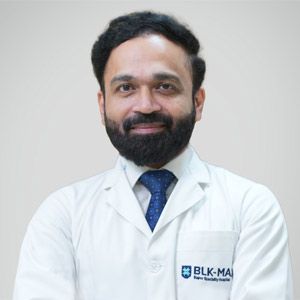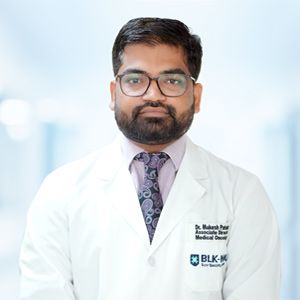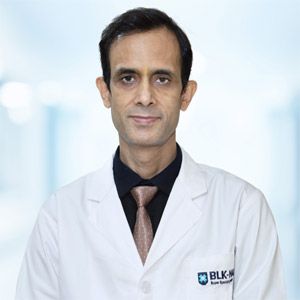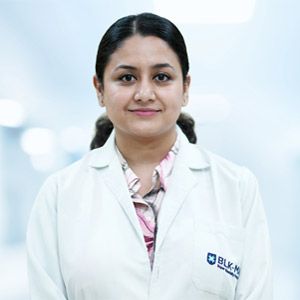Best Breast Cancer Specialists in Delhi, India
Dr. Rajesh Kumar Jain
Principal Director - Surgical Oncology
Surgical Oncology, Cancer Centre, Thorax & Lung Cancer Programme, Head and Neck Cancer Programme, Thoracic Cancer Programme, Thyroid Cancer Programme, Advance Urology Cancer Programme, Breast Cancer Programme, Sarcoma and Bone Cancer Programme, Paediatric Cancer Programme, Gynaecologic Cancer Programme, Cancer Robotic Surgery Programme, Lymphoma Cancer Programme
Dr. Anusheel Munshi
Principal Director & HOD - Radiation Oncology
Radiation Oncology, Cancer Centre, Head and Neck Cancer Programme, Thorax & Lung Cancer Programme, Thoracic Cancer Programme, Breast Cancer Programme, Thyroid Cancer Programme, Advance Urology Cancer Programme, Gastrointestinal (GI) Cancer Programme, Sarcoma and Bone Cancer Programme, Gynaecologic Cancer Programme, Paediatric Cancer Programme
Dr. Chandragouda Dodagoudar
Senior Director & Unit Head - Medical Oncology
Cancer Centre, Head and Neck Cancer Programme, Breast Cancer Programme, Gynaecologic Cancer Programme, Thoracic Cancer Programme, Thorax & Lung Cancer Programme, Thyroid Cancer Programme, Advance Urology Cancer Programme, Gastrointestinal (GI) Cancer Programme, Sarcoma and Bone Cancer Programme, Lymphoma Cancer Programme, Paediatric Cancer Programme
Dr. Pranjal Kulshreshtha
Director - Breast Oncological Surgery
Cancer Centre, Breast Cancer Programme
Dr. Mukesh Patekar
Associate Director - Medical Oncology
Cancer Centre, Medical Oncology, Sarcoma and Bone Cancer Programme, Head and Neck Cancer Programme, Thorax & Lung Cancer Programme, Thoracic Cancer Programme, Breast Cancer Programme, Thyroid Cancer Programme, Advance Urology Cancer Programme, Gastrointestinal (GI) Cancer Programme, Gynaecologic Cancer Programme
Dr. Ranjan
Senior Consultant - Medical Oncology
Medical Oncology, Cancer Centre, Sarcoma and Bone Cancer Programme, Head and Neck Cancer Programme, Thorax & Lung Cancer Programme, Breast Cancer Programme, Thoracic Cancer Programme, Advance Urology Cancer Programme, Thyroid Cancer Programme, Gastrointestinal (GI) Cancer Programme, Cancer Reconstructive Surgery Programme, Lymphoma Cancer Programme, Gynaecologic Cancer Programme
Can't find what you are looking for?
Dr. Garima Singh
Senior Consultant - Radiation Oncology
Radiation Oncology, Cancer Centre, Thorax & Lung Cancer Programme, Head and Neck Cancer Programme, Breast Cancer Programme, Advance Urology Cancer Programme, Thyroid Cancer Programme, Gastrointestinal (GI) Cancer Programme, Sarcoma and Bone Cancer Programme, Gynaecologic Cancer Programme, Lymphoma Cancer Programme, Paediatric Cancer Programme, Thoracic Cancer Programme
Dr. Khushboo Rastogi
Consultant - Radiation Oncology
Cancer Centre, Radiation Oncology, Thorax & Lung Cancer Programme, Thoracic Cancer Programme, Head and Neck Cancer Programme, Breast Cancer Programme, Thyroid Cancer Programme, Advance Urology Cancer Programme, Gastrointestinal (GI) Cancer Programme, Sarcoma and Bone Cancer Programme, Lymphoma Cancer Programme, Gynaecologic Cancer Programme
Can't find what you are looking for?
Frequently Asked Questions
1. Who is a Breast Cancer Specialist?
A breast cancer specialist, also known as a breast oncologist, is a medical professional who specialises in the diagnosis, treatment, and management of breast cancer. These specialists have extensive training in the field of breast cancer and are equipped to provide personalised care to patients at all stages of the disease.
Read more about What Is an Oncologist? Understanding Their Role & How to Choose the Right One for Cancer Care
2. Which conditions and types of diseases are treated by a breast cancer specialist?
- Breast cancer: The specialist can diagnose, treat and manage breast cancer in all its stages, including early-stage breast cancer, advanced breast cancer, and metastatic breast cancer.
- Benign breast conditions: Breast cancer specialists may also treat benign breast conditions, such as fibroadenomas, cysts, and breast pain.
- High-risk breast conditions: Women who are at high risk of developing breast cancer due to factors such as family history, genetic mutations, or previous breast biopsies with abnormal findings may also seek consultation and care from a breast cancer specialist.
- Breast cancer survivors: Breast cancer specialists may also provide follow-up care and survivorship support for patients who have completed their treatment for breast cancer.
3. When should I see a breast cancer specialist?
If you have been diagnosed with breast cancer or have symptoms such as a breast lump, changes in breast shape, size, nipple discharge, or breast pain, you should see a breast cancer specialist for evaluation and management.
4. What should I expect during my first visit to a breast cancer specialist?
During your first visit, the breast cancer specialist will review your medical history, perform a physical exam, and may order imaging tests and/or a biopsy if needed. They will then discuss treatment options and develop a personalised treatment plan based on your specific diagnosis and medical history.
5. What is the role of a breast cancer specialist in my treatment team?
A breast cancer specialist plays a critical role in your treatment team by providing specialised care and expertise in the diagnosis, treatment, and management of breast cancer. They work closely with other members of your treatment team, such as surgeons, radiation oncologists, medical oncologists, and genetic counsellors, to provide comprehensive care and support.
6. How often should I see my breast cancer specialist during treatment?
The frequency of your visits with your breast cancer specialist will depend on the stage and type of breast cancer and the treatment plan. In general, you may see your specialist every few weeks or months during active treatment and then less frequently after treatment is completed for follow-up care.
7. What should I do if I experience side effects from treatment?
If you experience side effects from treatment, such as nausea, fatigue, or pain, you should contact your breast cancer specialist as soon as possible. They can provide guidance and support for managing side effects and may adjust your treatment plan if needed.
8. Can a breast cancer specialist in Delhi provide a second opinion on my diagnosis or treatment plan?
Yes, breast cancer specialists in Delhi can provide a second opinion on your diagnosis or treatment plan. They have expertise in evaluating breast cancer cases and can offer insights, alternative perspectives, or confirmations to help you make informed decisions about your healthcare.
9. How does a breast cancer specialist in Delhi diagnose breast cancer?
Breast cancer specialists in Delhi employ various diagnostic techniques to diagnose breast cancer. These may include physical examinations, imaging tests such as mammography, ultrasound, or MRI, and tissue sampling through biopsies. They analyze the results to determine the presence, type, stage, and characteristics of breast cancer, guiding further treatment decisions.
10. How often should a patient go for breast cancer screening?
The frequency of breast cancer screening depends on several factors, including the patient's age, risk factors, and personal medical history. As a general guideline, most medical organizations recommend that women undergo mammograms every 1-2 years starting at the age of 40 or earlier if they have a higher risk or specific concerns.
Know more about - Breast MRI vs Mammogram vs Ultrasound: Which Test is Right for You?.
11. How often should I schedule follow-up appointments with a breast cancer specialist in Delhi?
The frequency of follow-up appointments with a breast cancer specialist in Delhi depends on various factors, including the stage of the cancer, the specific treatment received, and individual patient factors. Typically, follow-up appointments are scheduled every 3-6 months for the first few years post-treatment, gradually extending to annual visits.
12. What imaging tests are helpful to detect breast cancer?
Several imaging tests are helpful in detecting breast cancer, including mammography, ultrasound, and magnetic resonance imaging (MRI). Mammography is the most common screening tool, while ultrasound and MRI are often used for further evaluation of suspicious findings or in specific cases where additional imaging is necessary for a more comprehensive assessment.

